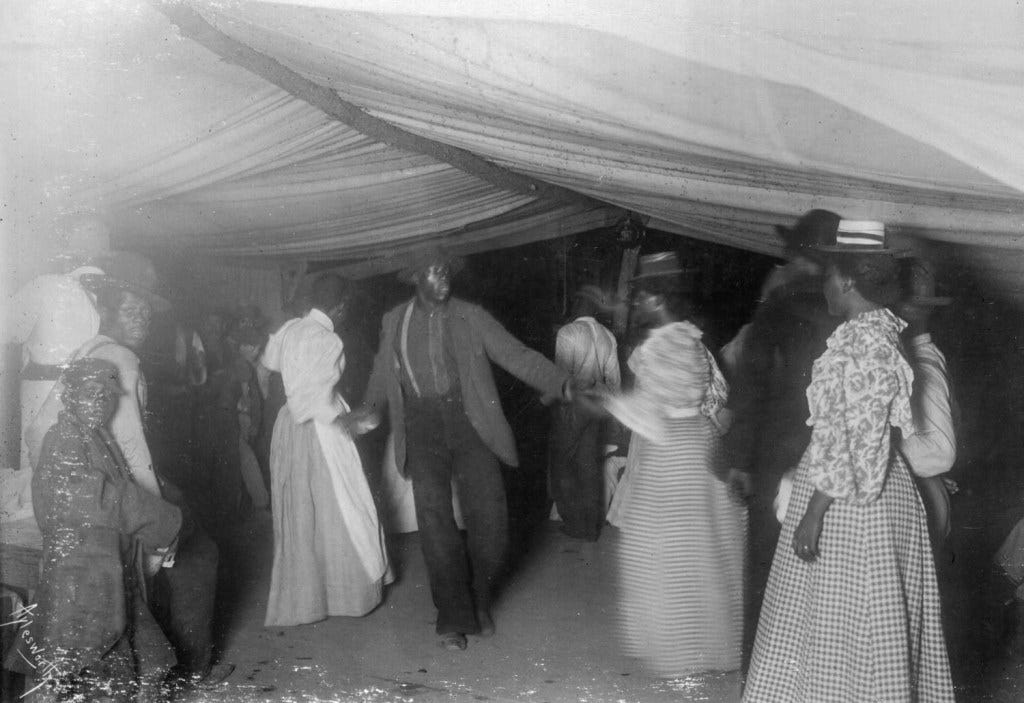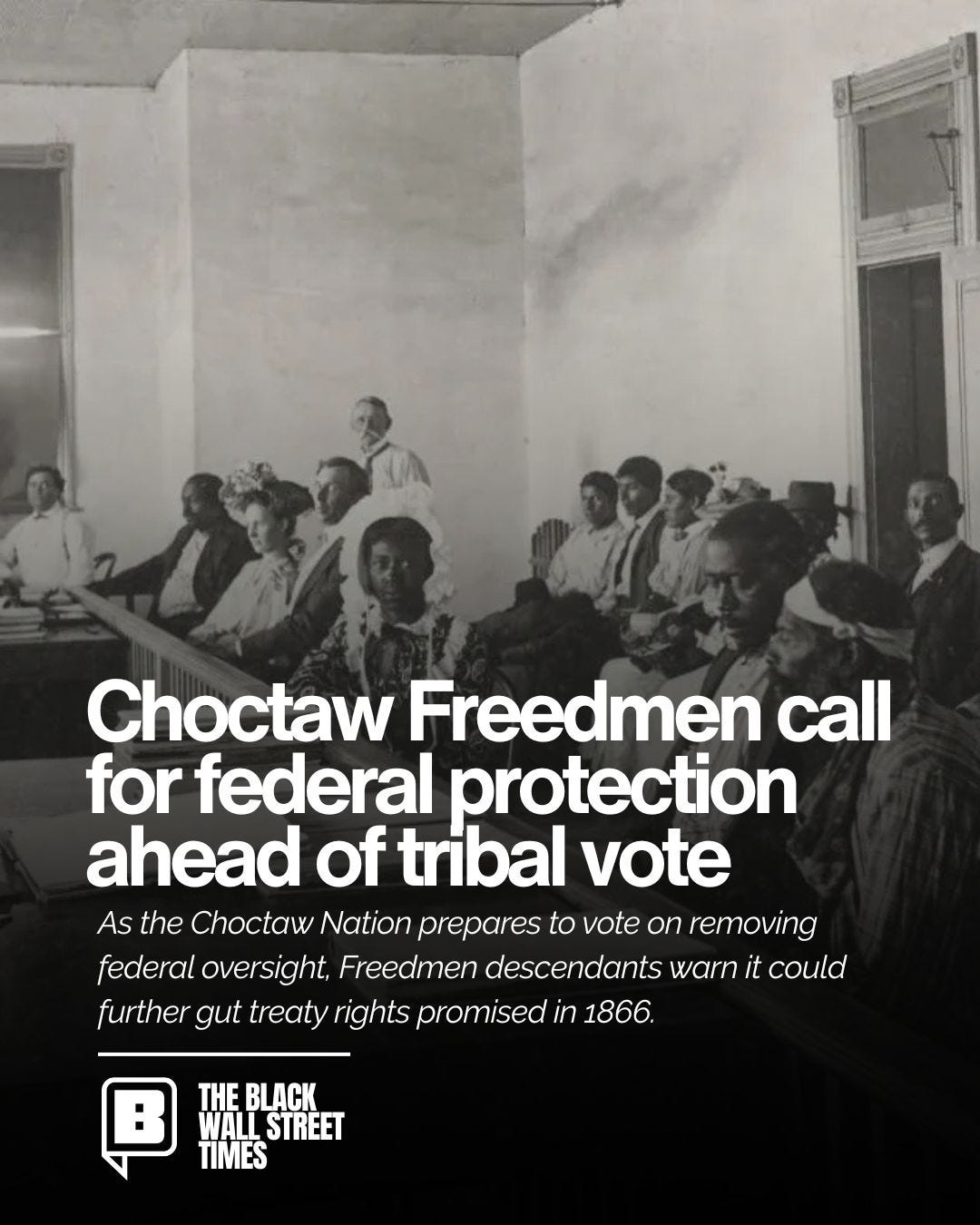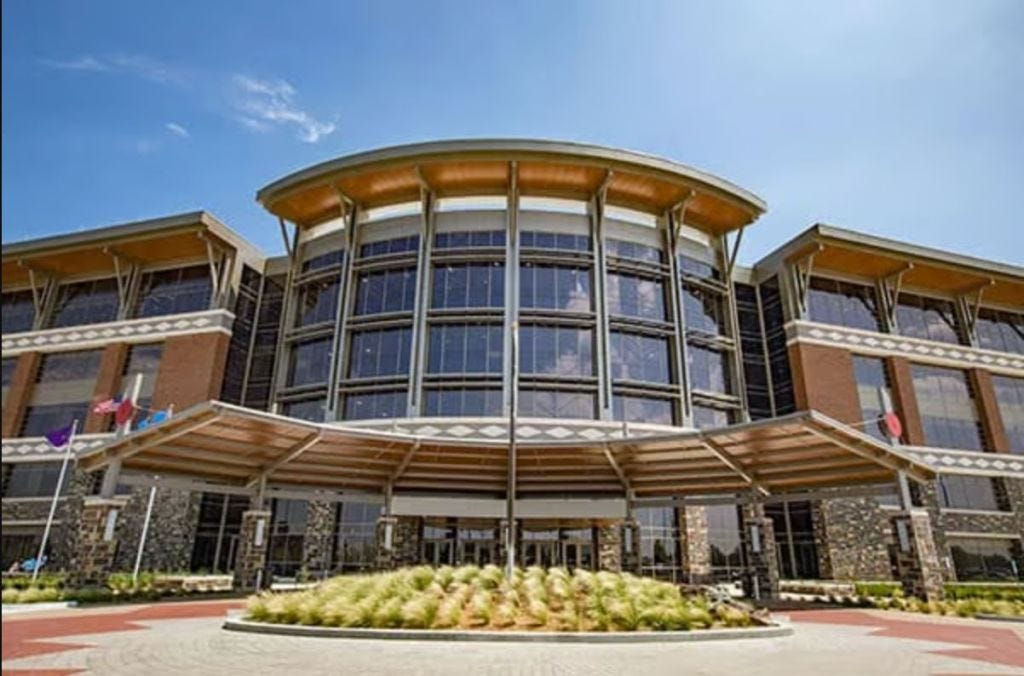Choctaw Freedmen Call for Federal Protection Before Tribal Vote
Freedmen descendants, who oppose the measure, fear it will be used to further erode rights for Choctaw Freedmen descendants.
An organization that educates and advocates for descendants of Freedmen who were formerly enslaved by the Five Tribes is calling on the federal government to push the Choctaw Nation to honor its 1866 Treaty obligations ahead of a tribal vote.
The Descendants of Freedmen of the Five Civilized Tribes Association (DF5CTA) sent a letter to the United States Secretary of the Interior Doug Burgam asking him to reject a ballot measure that would remove federal oversight when it comes to making changes to the Choctaw Nation Constitution.
“The letter was sent to stress U.S. government requirements to enforce 1866 treaty rights of Choctaw Freedmen and that retaining Federal oversight of Choctaw nation tribal constitutional amendments is critical,” said Marilyn Vann, president of the DF5CTA, in a press release on July 5.
The letter comes days ahead of a July 12 Choctaw Nation election. One of the measures on the ballot includes removing the U.S. Interior Secretary from being required to approve amendments to the Choctaw Nation Constitution.
“Adoption by not less than fifty-one percent (51%) of the total number of qualified voters of the Nation voting in the last Chief’s election shall be required to amend this Constitution,” the measure states.
Treaty of 1866 guarantees rights for Choctaw Freedmen descendants
Freedmen descendants, who oppose the measure, fear it will be used to further erode rights for Choctaw Freedmen descendants. Since 1866, all Five Tribes (Cherokee, Muscogee [Creek], Choctaw, Chickasaw, and Seminole) have been accused of violating citizenship rights granted by the treaties.
After the end of the Civil War, the Five Tribes entered into a series of Reconstruction treaties with the U.S. government concerning land jurisdiction, abolishing slavery, and granting full rights to Freedmen desecendants.
Article 3 of the Treaty with Choctaw and Chickasaw states the tribal nations must “give all persons of African descent, resident in the said nation at the date of the treaty of Fort Smith, and their descendants, heretofore held in slavery among said nations, all the rights, privileges, and immunities, including the right of suffrage, of citizens of said nations…”
In the late 19th century, the U.S. government passed laws dividing up Native lands and placing Indigenous peoples on the Dawes Roll. The U.S. government segregated the rolls by skin color–the By-Blood Dawes Rolls and the Freedmen Rolls.
It meant that many Freedmen and Natives of African descent were segregated to the Freedmen Rolls even if they could trace their Indigenous ancestors to a blood relative, according to the Oklahoma Historical Society.

Freedmen descendants ask DOI to reject ballot measure
Choctaw Freedmen are Choctaws with African ancestry descended from people enslaved by Choctaw tribal members and free people of African descent that lived in the Choctaw Nation before 1866. They have sought recognition and civil rights within the tribe for decades.
“I, Donald Harrison of Duncan Oklahoma, am descended from both Choctaw freedmen and Cyrus H Kingsbury, recognized as Choctaw by blood. I believe Federal oversight is essential to safeguard treaty rights of Choctaw freedmen and ensure that the United States upholds its trust responsibilities under the 1866 treaty,” said Donald Harrison, a DF5CTA member.
The organization has sent letters to members of Congress, Bureau of Indian Affairs staff, and Choctaw Nation of Oklahoma leadership stating opposition to DOI approval of the ballot measure, the release states.
“Federal involvement & oversight are needed to enforce Freedmen’s rights under the 1866 Treaty,” stated Choctaw Freedman Shelby Ward, Tennessee Representative of the DF5CTA.
In previous years, Congress members such as Rep. Maxine Waters (D-Ca.) have threatened to withhold federal funding to tribal nations that discriminate against Freedmen descendants.
Independent, Black-led journalism doesn’t just happen — it’s built, piece by piece, by a community that believes in the power of truth.
$8/month — Fuel our daily grind. Every headline, every fact-check, every bold question.
$80/year — Amplify a movement for justice-driven, independent reporting.
$250/year — Founding Members get their name etched in our story, behind-the-scenes invites, and exclusive content made for those shaping the future.
Step into the story with us. Be more than a reader — be the reason this work continues.








